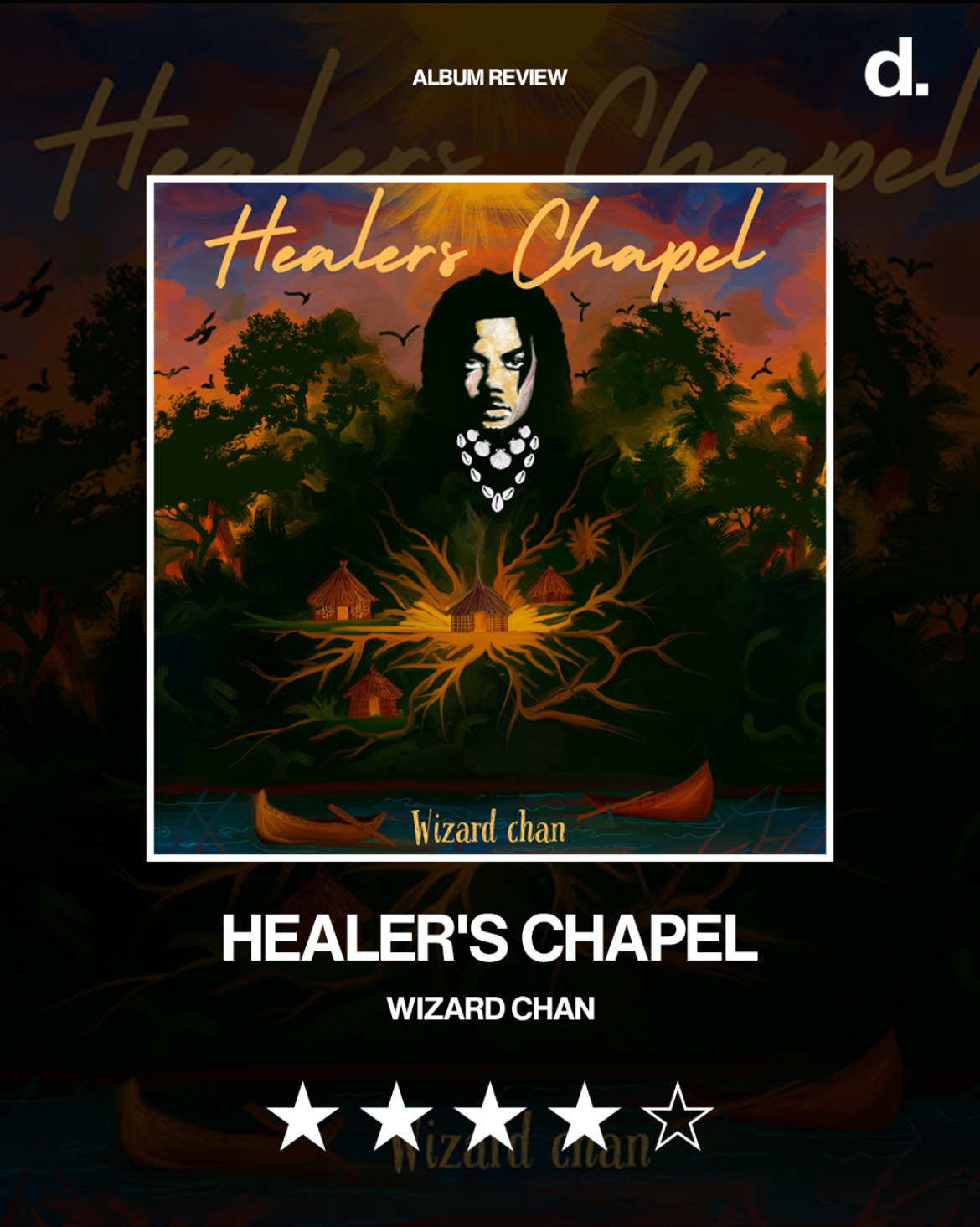When Wizard Chan broke out in 2022 with the gravity of Earth Song, he marked himself as something more than a fleeting voice in Nigeria’s expansive Afrobeats scene. His music, self-described as Afro-Teme (from the Ijaw word Teme, meaning “feel it”), has always been less about chasing trends and more about cultivating an atmosphere of depth, spirituality, and cultural resonance. With his debut album, Healer’s Chapel, a 14-track gospel project featuring Bona Nime, PDSTRN, and Joeboy. Wizard Chan doesn’t just build on the foundation of his earlier EPs (The Messenger and Time Traveller); he constructs a cathedral of sound and purpose, a space where grief, healing, and transcendence coexist.
What makes Healer’s Chapel remarkable is how it welds Wizard Chan’s deeply personal narratives to broader human concerns. He invokes legacy from the very start, I Want to Live Forever is a declaration of intent, situating his art in a long lineage of creators who seek immortality through sound. His mission is clear: to preserve his roots, to elevate his people, and to craft music that carries emotional permanence.
The album’s most compelling stretches reveal an artist unafraid to wrestle with contradiction. On Healer’s Chapel (ft. Bona Nime) and Quick Report (ft. PDSTRN), he critiques hypocrisy and systemic rot with the cadence of a prophet, while on Promised Land he envisions utopia, “a land that is full of peace, no hate in the sky, no jealousy in the air”, a radical imagining in an age fractured by tribalism, gender wars, and digital disillusion.
Yet Wizard Chan avoids sinking into sermonizing by allowing space for playfulness and nostalgia. Oh My Home reworks a childhood jingle familiar to generations of Nigerians, infusing the album with levity and warmth before he plunges back into vulnerability. On Flee Oh Sickness, he confronts mortality directly, recounting an overdose scare with the clarity of someone who has looked death in the face and lived to offer thanks.
This balance between the communal and the confessional anchors the record’s emotional weight. Tracks like In My Defense and Yours Truly are raw acknowledgements of guilt and absence, while Sober wrestles with the ghosts of addiction, admitting relapse even while celebrating growth. The thematic arc crescendos on Heal, where he recognises that pain never disappears but can be met with resilience, clarity, and a renewed relationship with God.
The closing track, Dein Na Mu (“Go in Peace” in Ijaw), is perhaps the album’s most personal moment. A tribute to the departed, elevated by Llona’s backing vocals, it distils the record’s essence: sorrow transfigured into beauty, death met with reverence, and language itself serving as cultural preservation. Healer’s Chapel is an open letter and also a diary, deeply rooted in the local while stretching toward the universal. Where the scene is dominated by immediacy and escapism, Wizard Chan insists on art that endures, art that feels. This debut is a deep human statement and music not just to hear, but to believe in.
.svg)







.png)

